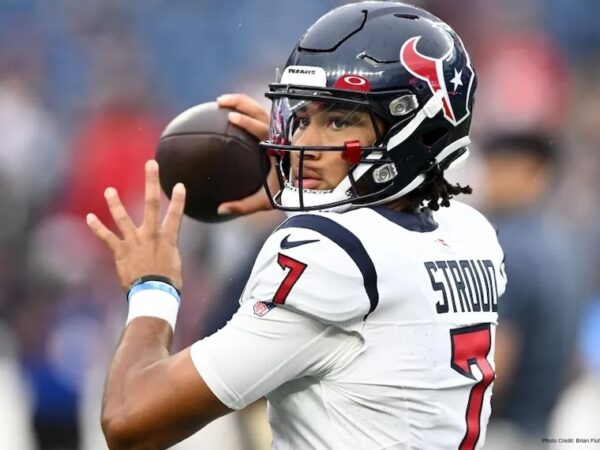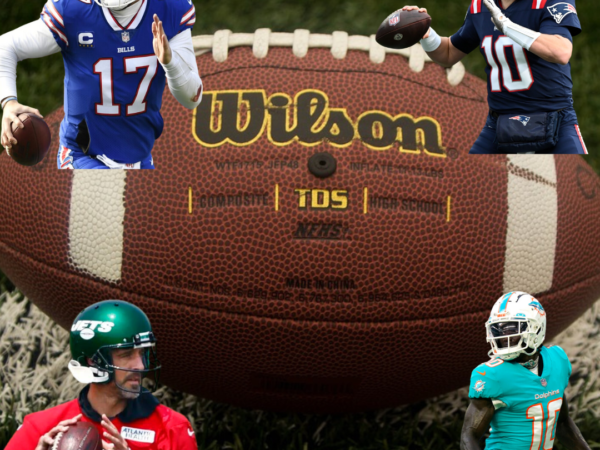This afternoon marks the official close for NFL teams to offer a franchise tag to players entering free agency. The franchise tag offers a small fortune for the pending free agent for the consequent season, and they are usually used when a team (1) can’t afford to pay the player the long term deal he is seeking due to cap space considerations; (2) is unsure of a player’s capabilities, most often in wake of an injured season; or (3) the team is in win-now mode and is more willing to pay a front loaded, short term contract.
The value of a franchise tag is comprised of either the average of the top five current salaries from the specific player’s position, or 120% of the player’s previous salary, whichever value is greater. Because of the position-specific quantification of the franchise tag value, it is common for defensive players to receive the tag due to the slower market inflation for defensive positions.
Teams will oftentimes use the looming possibility of a franchise tag as leverage during preliminary contract negotiations. Receiving a tag is not ideal for the player, because while it generally pays well, it lacks the long term financial security and stability that makes a player contract valuable.
The contract value is allocated to the player’s Paragraph Five salary (referred to as “P5,” from the CBA) wherein the value is apportioned throughout the season on a per-game basis.
It also means that if the player is injured or struggles at his position the next season, his free agency stock could fall. Conversely, if a player has a monster year, the payout could be even more rewarding than if he had entered free agency in the season prior. For the team, the tag is seen as a last resort, as each franchise is only granted one per season.
Six players received franchise tags for the 2020 season:
DeMarcus Lawrence, Defensive End, Dallas Cowboys, $20,500,000
Frank Clark, Defensive End, Seattle Seahawks, $17,100,000
Jadeveon Clowney, Defensive End or Outside Linebacker (yet to be determined), Houston Texans, $15,400,000
Dee Ford, Linebacker, Kansas City Chiefs, $15,400,000
Grady Jarrett, Defensive Tackle, Atlanta Falcons, $15,200,000
Robbie Gould, Kicker, San Fransisco 49ers, $4,900,000
*Clowney’s status as a DE or OLB has yet to be determined.
Rumors were leaked last week that Lawrence and the Cowboys were struggling to come to a deal.
It makes sense that for Lawrence, Clark and Clowney, the teams were unable to come to agreement on the value given last year’s drastic increase in value for edge and pass rushers after Aaron Donald and Khalil Mack reset the market. This is Dallas’s second year of tagging Lawrence, which explains the discrepancy between Lawrence and Clark’s value.
It’s hard to blame the teams from a financial perspective, given the increased focus on the importance of defensive pressure in wake of Mack and Donald’s successful performances in the 2018-19 season. Lawrence, Clark and Clowney’s agents were likely seeking to reset the market under similar justifications.
The Dee Ford tag is an interesting choice by Kansas City because of their transition into a 4-3 defense. Because they gave Ford a non-exclusive tag, according to Ian Rapoport, Kansas City has claimed that they are open to the possibility of trading Ford to a 3-4 system where he would have a greater chance of succeeding. If they were looking for a trade, the compensation would likely be along the lines of a second or third-round draft pick.
The Grady Jarrett tag was somewhat unexpected. Jarrett has been a consistent player, playing in 94% career games, and has had similar statistical success to Malik Jackson and Michael Brockers. Still, the Falcons have other monetary considerations to deal with, like their dilemma at running back between Freeman and Coleman, so the tag on Jarrett was likely a purely financial move.
Robbie Gould and the 49ers have a good thing going, and for a special teams player, the franchise tag usually comes pretty cheap. The market for kickers is generally tumultuous and notoriously short, so the tag will probably be the least impactful for Gould, who is 37 and entering into his fourteenth season in the League.
With a short list of tagged players, there were several younger players who did not receive the franchise tag that will make free agency exciting. Specifically, Trey Flowers, Landon Collins and CJ Mosely are all likely to have a lucrative offseason.
Flowers’s performance in the Super Bowl cemented him in the minds of any franchise looking for a young (Flowers is 25), talented defensive end. The Patriots are characteristically frugal, and are unlikely to give Flowers the big deal he is likely seeking.
Landon Collins has certainly garnered a great deal of interest after he openly declared that he would be leaving the Giants organization. Collins is one of the top safeties entering free agency and will probably be compensated similarly to Malcom Jenkins, Earl Thomas and Devin McCourty’s prior contracts, adjusted to cap inflation. He has also been regarded as an influential leader in the Giants locker room, something that many franchises actively seek to bring into their organization. As a young, talented potential leader to a growing franchise, Collins can easily distinguish himself from the other safeties on the market.
For C.J. Moseley, it’s probable that he will stay with the Ravens. The Ravens pride themselves on a physical defense. With the Flacco trade, having cleared up some cap space for the upcoming years, in order to secure Moseley a deal that reflects his talent. Moseley has been in the League for five years, has been to four Pro Bowls and was voted four times to the second team All Pro team.
That means that for 80% of his career, Mosely has been considered by fellow players, coaches and fans as a top player at his position, and by the press as the second best player at his position. So, if the Ravens want to retain Mosely, they are going to have to pay somewhere akin to Bobby Wagner (SEA) and Luke Keuchly (CAR) for compensation.
The next window of offseason activity will occur between the 11th and the 13th of this month, where clubs may begin to enter into contract negotiations with unrestricted free agents. Free agency will officially begin on March 13th.









